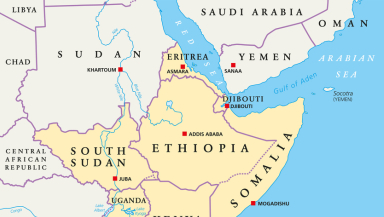
The Islamic State terror group has claimed responsibility for a series of attacks in Mozambique's Christian villages that left eight people killed, including by beheading, and several houses burned.
The attacks took place in six Christian villages in Cabo Delgado, the northernmost province of Mozambique, between May 23 and May 31. The terror group later released photographs of six decapitated bodies and images of the burned villages, the U.S.-based persecution watchdog International Christian Concern reports.
Four of those who were murdered were Christians, according to ICC, which added that the Islamic State and its affiliate groups have killed or displaced thousands of Christians in Mozambique.
A new wave of violent attacks also hit Cabo Delgado's Ancuabe district between June 2 and June 9, triggering the displacement of nearly 10,000 people, Save the Children said in a statement, adding that at least four people are believed to have been beheaded in those attacks.
More than 4,000 people have been killed and 800,000 forced from their homes since October 2017, when a civil war started in Cabo Delgado, according to the BBC, which noted that Cabo Delgado is rich with gas, rubies, graphite, gold and other natural resources, but the profits go to an elite in the ruling party, Frelimo, and few jobs have been created — a situation that was exploited by the Islamic State and jihadists.
The number of children displaced by the conflict in Cabo Delgado has now increased from 370,000 to over 400,000, according to the Ministry of Gender, Children and Social Welfare, Save the Children added.
In March 2021, the U.S. labeled the insurgents as ISIS-Mozambique and "global terrorists," and some believe that IS and Washington might be aiming for a proxy war in that country.
At least 24 countries have sent troops to support the fight against insurgents in Mozambique, whose army has been accused of being corrupt and having 7,000 "ghost soldiers," who receive salaries without receiving any military training or setting foot in a military unit, the BBC reports.
"In 2017, jihadist insurgents began in the Cabo-Delgado province, winning over some locals due to the fact that they gave back resources to villagers from the government, and killed no one," ICC explained. "This did not last, however, as IS started setting fire to Christian villages, and killing those who lived there."
On Jan. 13, IS attacked the village of Citate, setting fire to 60 homes, and the following day, 20 more homes were set on fire in that village, leading to 200 more homes being burned in Limwalamwala village on Jan. 18, ICC said.













